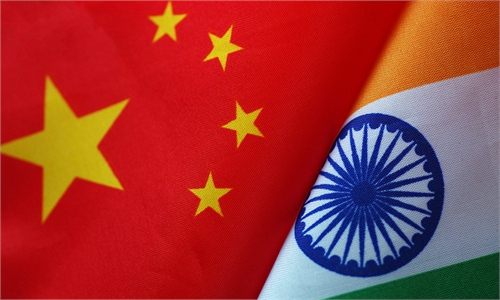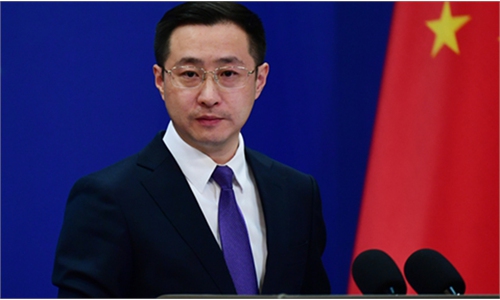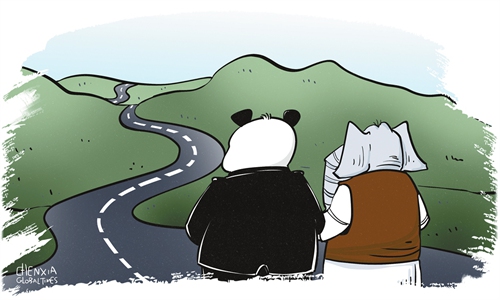Good seeds need to be sowed in fertile soil of China-India ties breakthrough: former Indian PM aide

Photos: VCG
Editor's Note:Recently, China and India have made significant efforts to further ease bilateral ties between the two countries. We have witnessed a series of encouraging events, from the breakthrough agreement to ease border tensions reached by the two countries, to the first formal bilateral meeting between the two heads of state in five years during the BRICS Summit, to the smooth implementation of the resolutions that the two sides reached on border issue. How should we understand this progress? Why is it important for the two countries to mend their ties? What could we expect in the next stage? Sudheendra Kulkarni (Kulkarni), a close aide to former Indian prime minister Atal Bihari Vajpayee and the founder of the Forum for a New South Asia, shared his thoughts on these topics with Global Times (GT) reporter Xia Wenxin.
GT: How do you evaluate the signals released by this series of events regarding China-India relations?
Kulkarni: October 2024 will be recorded in history as a month when a paradigm-shifting breakthrough happened in the relations between India and China. The unfortunate and avoidable military stand-off along the Line of Actual Control (LAC) in May-June 2020 created a paradigm that many Western commentators believed signified a permanent rupture between our two countries. They reckoned that India would permanently join the anti-China alliance of the Western powers led by the US.
Their fond expectations and geopolitical designs have received a rude jolt. The fact that this series of developments took place within a span of 10 short days shows the strategic determination of Prime Minister Narendra Modi and President Xi Jinping, to bury the recent past and bring the bilateral relations into a new paradigm of constructive engagement, leading to comprehensive cooperation, good-neighborliness and even potential partnership in some areas of vital mutual interest. The ice has been broken. Now, there is no going back. There will be only going forward.
GT: Indian External Affairs Minister S Jaishankar said recently that the breakthrough agreement with China does not mean that the issues between the two countries have been resolved. However, the disengagement allows us to look at the next step. After the recent positive developments, do you think China-India relations can sustain the momentum?
Kulkarni: Yes, I am optimistic that, in the coming months and years, India-China relations will sustain the momentum created by the positive breakthrough last month. Jaishankar is right in his prognosis that the disengagement allows our two countries to look at the "next step." Surely, as he said, it would take time to build trust and willingness to work together on the part of both countries.
My optimism is based on two undeniable realities. First, India and China are two great Asian neighbors and, as neighbors, we can never have a tense and hostile relationship on a permanent basis. India and China share the same unchangeable geography. However, we also share the wisdom of our two ancient civilizations, which have survived and flourished on the bedrock principles of peaceful coexistence, mutual learning and mutual enrichment.
The second reality that has compelled our two countries to seek engagement is that experience has convinced both countries that, in today's fast-changing world, Western powers cannot be reliable partners in our respective efforts to achieve national rejuvenation. China is facing illegal sanctions, restrictions, technology denials and market blockages by Western powers. On its part, India has realized that the US and its close political-geographical ally Canada will not hesitate to harbor anti-India separatist forces on their soil.
Furthermore, China's own rise as a major economic and technological power has convinced both business and governmental circles in India that it is not in our national developmental interest to join the Western powers in their game to "isolate and contain China." Our bilateral trade rose to unprecedented levels in the past five years despite border tensions. This shows that India and China need each other and can benefit from each other.
GT: Based on your observations, what are the expectations within India and its society for relations with China? Are there growing voices in favor of better relations with China?
Kulkarni: My experience has convinced me that soil becomes fertile for such work when governmental relations are positive, and the soil becomes arid when such relations turn negative. Now that our government-government relations have achieved a positive breakthrough, there are enormous possibilities for like-minded people on both sides to sow good seeds in the fertile soil and grow the crop with consistent care and commitment. The resultant harvest will surely be bountiful.
I may mention here that I have consciously and persistently tried to promote a better understanding of China among senior leaders of the Rashtriya Swayamsevak Sangh (RSS), the mother organization of Modi's ruling Bharatiya Janata Party (BJP). The RSS, which is a large and highly influential Hindu social organization, has some negative perceptions about China. These perceptions are partly on account of the fact that very few of its top and middle-level leaders have traveled to China and established a dialogue with influential political-cultural bodies in China.
I have met a few top leaders of the RSS and tried to promote this dialogue. The response I have received is positive. I urge the Chinese government, think tanks and cultural bodies to make determined efforts to reach out to the RSS and other such influential organizations in India. The outcome will surely be constructive.
GT: Some Western countries have been attempting to use India as a counterweight to China and even portray India as an alternative to China. How do you view the fact that China and India can continue to smoothen their relationship despite India constantly being courted by the West?
Kulkarni: The fact that India and China have an unresolved border dispute, giving rise to unfriendly bilateral ties and a large trust deficit, has given Western powers hope that they can use India against China.
Therefore, the best way to frustrate the designs of Western powers is to normalize India-China bilateral relations. I firmly believe that India and China can successfully smoothen their relationship despite India constantly being pulled in by the West. The responsibility for this lies with both of our countries.
First, China should know that India is a proudly independent nation that fiercely defends its independence and freedom of choice. Furthermore, India is too large a country to become a camp follower of any big global power. Based on this knowledge about India's independent nature, China should devise its own friendship-promoting foreign policy approach toward New Delhi.
Similarly, India should recognize that China's rise as a global power is a reality that no power in the world can stop or change. This phenomenon, like India's rise as a global power, is in keeping with the new positive direction of human history.
There are some forces in India that believe that "we need a partnership with the West, especially the US, to counter China's threat." India should keep such forces in check. The more India-China relations become normal, leading to expanding areas of trust-promoting win-win cooperation, the less influential these anti-China forces will become.
Second, just as China aspires to play its rightful role in reshaping the Asian and world order, India also has the same aspiration. Both China and India, as the only two countries with populations of over one billion, want to secure their rightful place in the multipolar global and Asian order. At a time when the center of gravity of the global economy and politics is shifting irreversibly from the West to Asia, this is a natural corollary of the Chinese Dream and the Indian Dream. Therefore, we should identify maximum points of commonness and convergence between the Chinese Dream and the Indian Dream, while sincerely trying to resolve the differences through dialogue.



